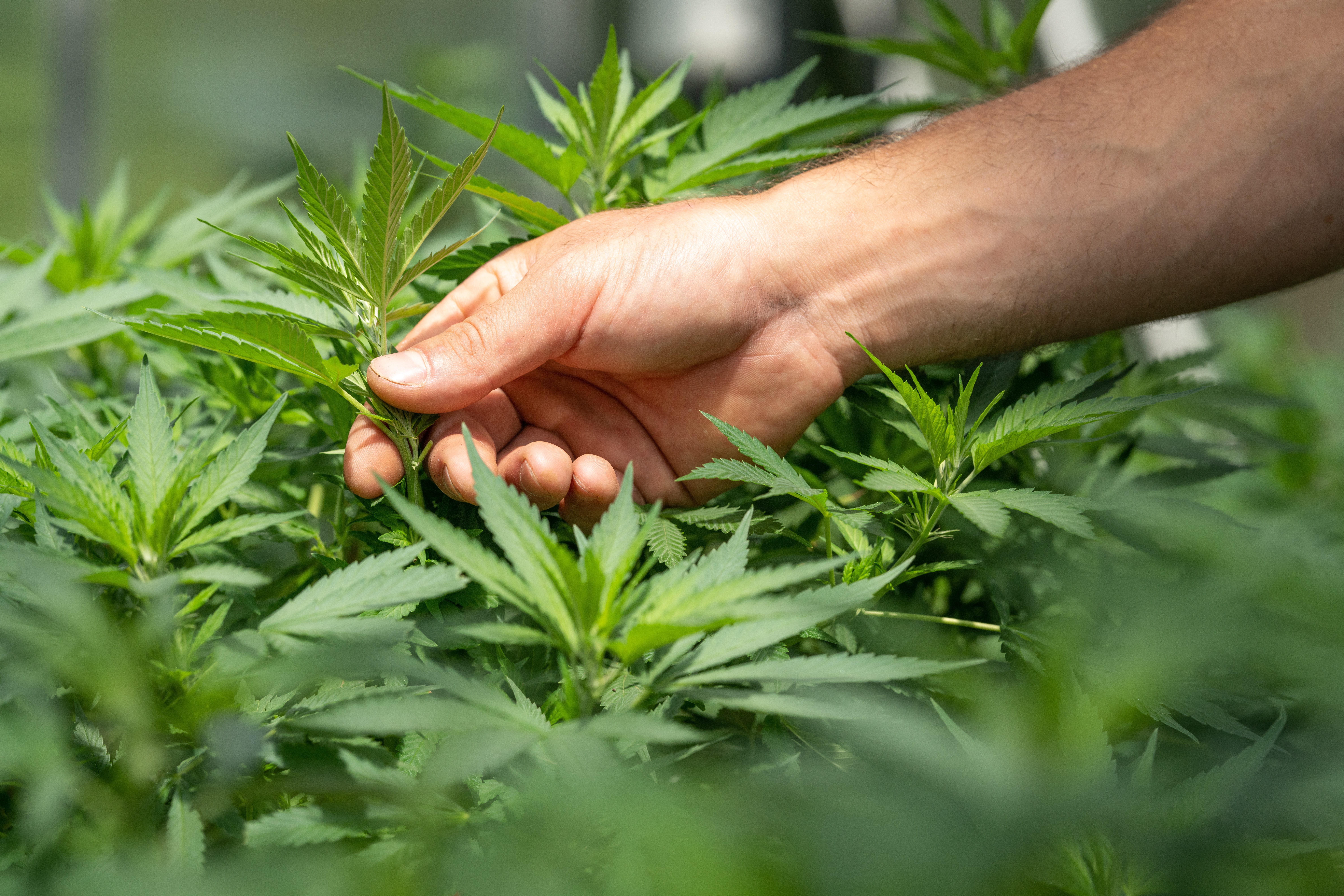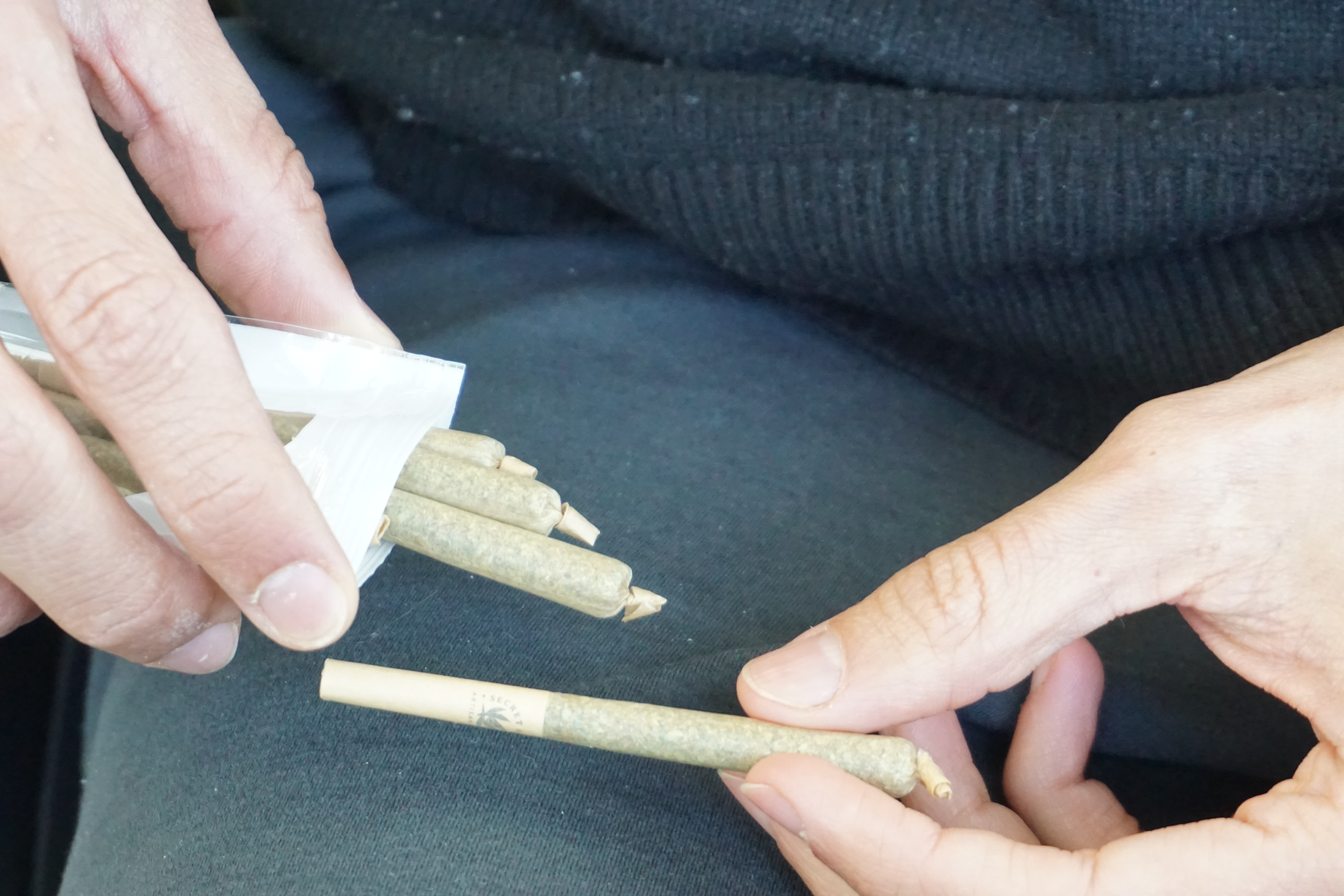It is common knowledge that one of the side effects of marijuana use is an increased appetite, also known as "the munchies." But what about CBD? Does this non-psychoactive compound from the cannabis plant also stimulate appetite? Let's take a look at the research to find out.
CBD oil is shown to stimulate appetite in both humans and animals. This may benefit those struggling with a loss of appetite due to medical conditions or treatments. CBD oil also alleviates nausea, which can further increase the desire to eat. Although more research is needed, CBD may be an effective treatment option for appetite issues.
The Hunger Games connection - How CBD may stimulate appetite
Marijuana has long been known to increase appetite, but how does it do this? THC, the main psychoactive compound in marijuana, binds to cannabinoid receptors in the brain. These receptors are located in areas that regulate hunger, such as the hypothalamus. When THC binds to these receptors, it stimulates appetite.
CBD also binds to cannabinoid receptors, but it does so in a different way than THC. CBD inhibits the binding of THC to these receptors. This means that CBD may reduce hunger in people who have eaten recently. However, CBD also has other bodily effects that may stimulate appetite. For example, CBD can increase levels of the hormone ghrelin. Ghrelin is often called the "hunger hormone" because it regulates appetite and helps tells the body when it's time to eat.
The connection between CBD and appetite stimulation has been scientifically proven. A study published in the British Journal of Clinical Pharmacology showed that CBD increased rats' appetite by interacting with CB1 receptors in the brain. This is the same receptor targeted by THC, the active ingredient in marijuana. However, unlike THC, CBD does not have any psychoactive effects. This means that it can increase appetite without causing any unwanted side effects. Another study showed that CBD could also help to increase appetite by stimulating the production of ghrelin. This hormone is responsible for regulating hunger. So, if you're looking for a natural way to stimulate your appetite, CBD may be worth considering.
How to use CBD oil for weight loss
CBD oil has become a popular natural remedy for many health issues, including anxiety, pain, and inflammation. Recently, it has also been touted as a possible solution for weight loss. CBD oil reduces appetite and promotes metabolism by interacting with the body's CB1 and CB2 receptors. Additionally, CBD oil may help to break down fat cells by increasing levels of the body's natural fat-burning hormone, cAMP. While more research is needed to confirm these effects, CBD oil may be worth trying if you struggle to lose weight. Add a few drops to your favorite beverage or take it sublingually (under the tongue) for fast absorption. Start with a low dose and increase gradually until you reach your desired effect.
Side effects of CBD oil
CBD oil is a popular natural medication for a variety of ailments. However, like any other supplement, it can cause side effects in some people. The most common side effects include changes in appetite and weight, dizziness, diarrhea, and fatigue. CBD oil can also interact with certain medications, so it's important to talk to your doctor before taking it. In most cases, the side effects of CBD oil are mild and temporary. However, suppose you experience severe side effects or persist for more than a few weeks. In that case, it's best to stop taking the supplement and see a doctor.
Dosage recommendations for CBD oil.
CBD oil is frequently used to promote appetite. While there are no official dosage recommendations, it is generally agreed that a starting dose should be between 1 and 5 milligrams per kilogram of body weight. For example, a person weighing 150 pounds would start with 10-25 milligrams of CBD oil. If this does not seem effective, the dose can be increased by 5 milligrams every 3-4 weeks. It is important to start with a lower dose and increase gradually, as too high of a dose may cause nausea or other unpleasant side effects. When taken properly, CBD oil can be an effective way to improve appetite and promote overall health.
CBD and Appetite Stimulation
Appetite stimulation is one of the most common reasons people use CBD oil. Although there are many appetite-stimulating medications available, many people prefer CBD oil because it's natural and doesn't have the same side effects as some of the more traditional appetite stimulants. CBD oil can be taken in various ways, including sublingual drops, capsules, and even edibles. And although it's still not FDA-approved for appetite stimulation, many people find it a safe and effective way to increase their appetite. If you're considering using CBD oil for appetite stimulation, talk to your healthcare provider first to make sure it's right for you.
Conclusion
CBD oil is a natural supplement that has become popular recently for its potential health benefits. One of these benefits may be the stimulation of appetite, which could be helpful for people struggling with weight loss. We do know that CBD can bind to cannabinoid receptors and influence hormones that regulate hunger. So CBD may increase appetite in some people, particularly those who haven't eaten recently. Whether or not you experience an increase in appetite after taking CBD oil depends on various factors, including your physiology and whether or not you've eaten recently. We've outlined how to use CBD oil for weight loss and some possible side effects associated with its use. Dosage recommendations are also provided. Suppose you're considering using CBD oil to stimulate your appetite and help with weight loss. In that case, we encourage you to do so under the guidance of a healthcare professional. Have you tried CBD oil for weight loss? What was your experience?
Sources:
A Scientific Explanation of How Marijuana Causes the Munchies
Cannabigerol is a novel, well-tolerated appetite stimulant in pre-satiated rats





